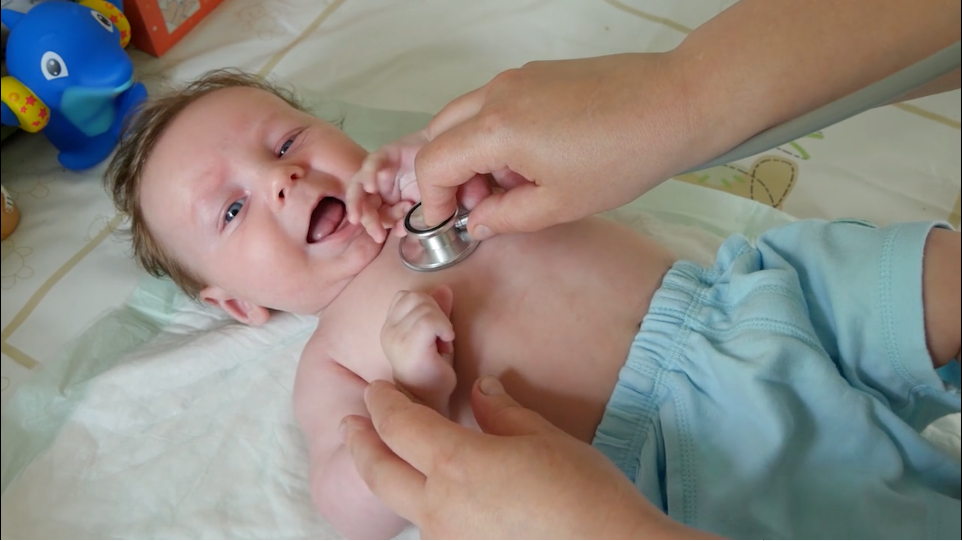Blog
-
Research Update: Affordability and Economic Security Thanks to Medicaid
CCF’s last research update focused on families’ increase in economic security after the Medicaid expansion. This week, I would like to build on the research presented last time. Below are two additional studies that examine links between affordable, comprehensive health care and financial security. And of course, the role of Medicaid in it all. Health…
-
CMS Administrator’s Proposed Changes to Medicaid: Reprehensible
Earlier this week, the Administrator of the Centers for Medicare & Medicaid Services, Seema Verma, gave a major policy address to the National Association of Medicaid Directors. After invoking Hubert Humphrey on the moral tests of government – her office is in the Humphrey building — she characterized expanding Medicaid coverage to uninsured adults without…
-
New Bikeshare Options for our Annual Georgetown CCF Conference
If you’ve been to the Annual Georgetown CCF Conference for children’s groups here in Washington, DC over the past few years, you might have come on our informal evening bicycle tour of the Potomac and national monuments. Here at CCF, we are proponents of healthy children and families, and that includes plenty of exercise –…
-
West Virginia CHIP Board Votes to End CHIP on February 28 if Congress Fails to Fund CHIP in Time
Yesterday, the West Virginia CHIP Board reckoned with the stark reality of the consequences of Congressional inaction on CHIP. Faced with running out of federal funds in March, the Board determined that available funding will only cover children through February. The board plans to notify families in early January that the program will close on…
-
State Oversight in Marketplace Open Enrollment More Important Than Ever
We’re in the midst of open enrollment (OE) for 2018 coverage in the marketplaces, and there’s considerable concern that the many challenges accompanying this OE will result in far fewer people enrolled in coverage. Open enrollment this year will be just half the time of previous open enrollment periods – 6 weeks, beginning November 1st –…
-
Maine Voters Voice Strong Support for Medicaid Expansion
Seema Verma, the administrator of the Centers for Medicare and Medicaid Services, recently criticized the Medicaid program’s expansion under the Affordable Care Act in sharp terms: “We’ve put more than 10 million people, 12 million people into this program where the doctors won’t see them, and the policies that are in the Medicaid program are…
-
Reporting on FY 2016 Child Core Set Includes Key Developmental Screening Measure
State voluntary reporting for FY 2016 of the Child Core Set of Health Care Quality Measures is now available on Medicaid.gov. As it has done for the past two cycles, CMS provides a helpful downloadable dataset of state reporting. Fifty states reported at least one measure, with 45 reporting at least half of the 26…
-
House Votes to Extend CHIP Funding Without Bipartisan Agreement on Offsets
Today, the U.S. House of Representatives voted to extend Children’s Health Insurance Program (CHIP) funding along with other health care provisions in the Championing Healthy Kids Act (wait for it…the Community Health and Medicaid Professionals Improve Our Nation, Increase National Gains, and Help Ensure Access for Little Ones, Toddlers and Hopeful Youth by Keeping Insurance…
-
Work Requirements in Medicaid Would Add More Red-Tape and Barriers to Health Coverage
Having failed to cut Medicaid through legislation, the Trump Administration is moving forward with administrative actions that would permit states to impose roadblocks to enrollment. We anticipate that the administration may soon grant waivers that would for the first time allow work requirements in Medicaid, modeled off of similar federal provisions in Temporary Assistance for…
-
CHIP Funding Delays Risk Enrollment Freezes that would Reverse Success on Kid’s Health Coverage
Last week we released a new report on the consequences of delayed Congressional action on CHIP. Federal funding for CHIP expired 32 days ago, an unprecedented lapse in CHIP’s 20-year history. States are quickly running out of federal funding, with Arizona, Minnesota, and Oregon slated to exhaust federal funds before the end of December. If…
-
States Step Up to Protect Consumers in Wake of Cuts to ACA Cost-Sharing Reduction Payments
This post from the Center on Health Insurance Reforms originally appeared on the Commonwealth Fund blog. On October 12, President Trump announced he would discontinue reimbursements to insurance companies for Affordable Care Act (ACA) cost-sharing reduction (CSR) plans offered through the health insurance marketplace. Ending the CSR reimbursements is projected to cost insurers $8 billion…
-
Research Update: Economic Security After the Medicaid Expansion
Readers of Say Ahhh! know that Medicaid coverage increases economic security for families. This week, I am reading studies specifically on the Medicaid expansion and how it contributes to economic security. The expansion is only a few years old; the data and the research are still in their beginning stages. Still, this new and expanding…
-
Why Projecting When States Will Run Out of CHIP Funds is a Moving Target
This week we released a new report on the consequences of delayed Congressional action on the Children’s Health Insurance Program (CHIP). Federal funding for CHIP expired 27 days ago, an unprecedented lapse in CHIP’s 20-year history. Some policymakers have reasoned that the situation is not urgent because all states have some unspent funds available from…
-
What are the Consequences of Congressional Inaction on CHIP?
Funding for the Children’s Health Insurance Program (CHIP) expired 26 days ago and Congress still hasn’t acted. I have been working on CHIP since its inception, and this is unprecedented! Today we are releasing a report that unpacks some of the implications of Congressional inaction beyond the beltway. We didn’t survey all 50 states but…
-
Have Questions on Private Health Insurance? Check out Latest Navigator Resource Guide
It’s been a bumpy road for the Affordable Care Act these last few months, but starting November 1, the marketplace is open for enrollment. As the fifth open enrollment season is upon us, we at CHIR have launched our updated and improved Navigator Resource Guide, made possible thanks to a grant from the Robert Wood Johnson Foundation.…
-
Kaiser Family Foundation 50-State Budget Survey Provides Insight Into Medicaid Trends
The Kaiser Family Foundation’s annual 50-state budget survey is here! This year, they’ve captured the findings in three reports – Medicaid Enrollment & Spending Growth: FY 2017 & 2018, providing an analysis of national trends in Medicaid enrollment and spending; Medicaid Moving Ahead in Uncertain Times, taking a more detailed look at the policy and…
-
It’s Not Time to Give Away Consumer Protections for Cost-Sharing Reduction Reimbursements
A whirlwind of activity following the White House announcement that cost-sharing reduction (CSR) reimbursements would no longer be made has culminated, at least for now, in a bipartisan agreement in the Senate to appropriate the payments for two years. While the legislation negotiated by Senators Alexander and Murray had 24 co-sponsors as of October 19, it is unclear…
-
Research Update: Health Care in Rural and Urban America
CCF is starting a new series on research in health policy. I will regularly highlight some of the new research that I have been reading. This week, I am reading studies comparing health care and poverty in rural and urban parts of the country. AHRQ’s National Healthcare Quality and Disparities Report: Chartbook on Rural Health…
-
Continued Congressional Inaction on CHIP Underscores Need for Change in Priorities
Last week, as has been widely reported, President Trump issued an Executive Order allowing short-term insurance plans to be offered for up to an entire year and the sale of association health plans. As my colleague, Sabrina Corlette, wrote in US News & World Report, “The executive order sets the stage for new health plans…
-
New Data Shows Child Health Coverage Rate Racial Disparities are Narrowing
Last month, the Center for Children and Families reported that almost 2 million children have gained health insurance since the implementation of the major provisions of the Affordable Care Act. More good news from our colleagues at the Commonwealth Fund: in their analysis of the U.S. Census Bureau’s American Community Survey, researchers found that racial…



















